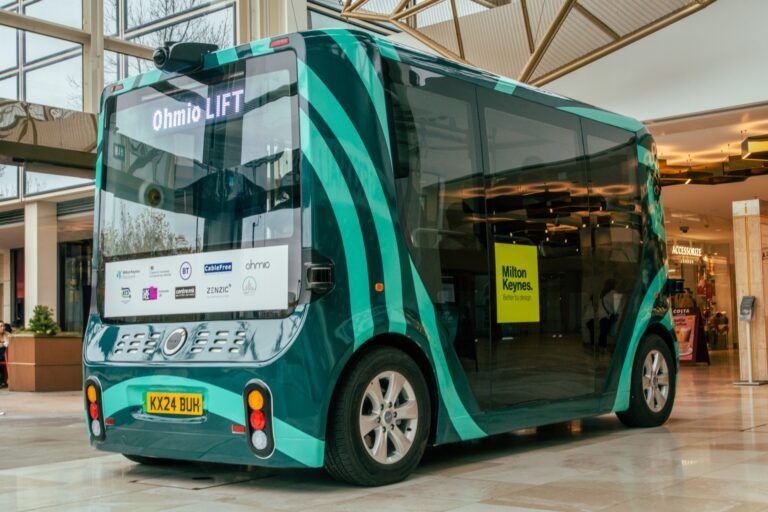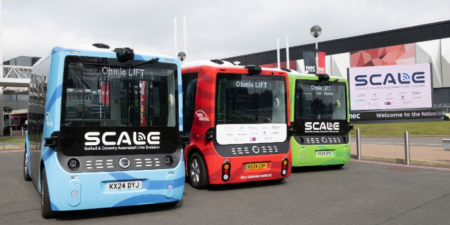A self-driving shuttle developed to transport residents across Milton Keynes in the UK is set to be tested on city roads next month and, if successful, people could begin utilizing the service as early as next year.
StreetCAV is a ‘plug-and-play’ driverless shuttle that has been developed by a consortium of private and public sector organizations, including Smart City Consultancy (SMCCL), Milton Keynes City Council, Ohmio, CableFree, BT and Electronics Computers and Systems (ECS), as part of the CAM Supply Chain UK program, funded by the Centre for Connected and Autonomous Vehicles (CCAV).
SMCCL is leading the project, which it hopes will become a blueprint for UK-wide deployment. “The StreetCAV project has been going for some time now so we are absolutely thrilled that it is finally at a stage where we can reveal it to the world,” said Ian Pulford, CEO at SMCCL.
“Thanks to the partners we’ve been fortunate to involve in the project, we truly believe we have developed a solution which can change the future of urban mobility while making our towns and cities smarter, greener, and more inclusive,” he added.
According to Pulford, the StreetCAV consortium has worked rigorously to ensure public safety. Working closely with Milton Keynes City Council, BT and ECS, the team will establish a city centre control room, connected by a specifically designed communications network, provided by CableFree, which will in-turn allow the Ohmio driverless vehicles to be supervised and managed remotely.
Zenzic was set up by industry and the government to help the UK become a world-leader in the development and deployment of self-driving and connected vehicles.
Over the past few years, the organization has provided more than £100m in funding to scores of projects through its programs, as well as helping set up the CAM UK Testbed, which offers investors the opportunity to develop connected and automated mobility technologies from concept to commercialization.
Mark Cracknell, program director at Zenzic, said: “Should the trial prove a success, it could lay the foundations for a more connected, inclusive, and resilient transportation network not only for Milton Keynes, but for towns and cities across the globe.
“It is a perfect example of how, by working more collaboratively and bringing together industry, academia and the public sector, the UK can lead the way in accelerating the self-driving revolution,” Cracknell added.





